
Cooper-Du Bois Mentoring Program 2025
For students interested in Graduate Studies in African American
and Diaspora Literature, Language, and Culture and Black Digital and Public Scholarship
Save the Dates!
October 24-26, 2025
Pennsylvania State University
Virtual Zoom Meeting
Apply by May 26, 2025 at:
http://english.la.psu.edu/graduate/cooper-du-bois-mentoring-program
Join our next cohort of Cooper-Du Bois fellows to learn more about pursuing graduate studies, especially with a focus in African American and Diaspora Literature, Language, and Culture and Black Digital and Public Scholarship.
Are you interested in learning more about graduate studies in African American and Diaspora literature, language, and culture? Are you considering public-facing and/or digital research as part of your graduate work? Would you like to learn more about the ins and outs of applying to graduate school? Apply now for this three-day program to attend workshops on a variety of topics related to graduate studies and the admissions process.
SESSION TOPICS INCLUDE:
- Graduate Studies in African American and Diaspora Literature and Language
- Opportunities for Digital and Public Research and Scholarship
- The Graduate School Application: Navigating the Process and Preparing Materials
- Preparing the Statement of Purpose and Writing Sample
- Perspectives on the field from faculty, area and program heads, current and former graduate
students, and former Cooper-Du Bois Fellows
STUDENTS WILL RECEIVE:
- Programming and instructional materials
- Reimbursement for Penn State Graduate School application fee (if applying)
- Opportunity to build community with faculty, graduate students, and your 2025 cohort
Eligibility Requirements:
- Applicants should be juniors, seniors, or Masters students currently enrolled in or having earned a degree from a U.S. college or university. Priority will be given to students interested in applying to graduate school in Winter 2024 for admission in Fall 2024.
- Priority given to applicants from racial or ethnic groups under-represented in the discipline of English/Literary Studies and/or in the English graduate program at Penn State University.
- Applicants must have a strong, demonstrated interest in pursuing African American literary, cultural and/or rhetorical studies and a dual-title degree with African American studies.
- Applicants must be at least 18 years of age.
Required Materials:
- a 1-2 page letter of application stating your academic/career goals and research interests;
- an unofficial transcript;
- and one letter of recommendation submitted by a faculty member.
Apply now at http://english.la.psu.edu/graduate/cooper-du-bois-mentoring-program.
Applications must be uploaded to our online application site by 11:59 p.m. on May 26 (letter of
recommendation to be submitted by June 2).
Cooper-DuBois Grad Student Mentors 2022-23

Pheolyn Allen
Pheolyn Allen is a Bunton-Waller Fellow and joined the Center for Black Digital Research as a #DigBlk Scholar in the Fall of 2021 at Penn State University. He holds a Bachelors degree in Media Arts from the University of North Texas, where he served as an instructor for the UNT Media Arts Lab, educating marginalized communities and foster youth in media pedagogy and filmmaking techniques. He is now pursuing a Masters in English Literature and a dual-title Ph.D. in English Literature and African-American Studies. His research areas include Afrofuturism, utopic formations of Blackness, Black LGBTQ literature, the Harlem Renaissance, and literary works of the Gay Liberation Movement, the AIDS epidemic, and the Black LGBTQ Ballroom community. Contact:pch5146@psu.edu
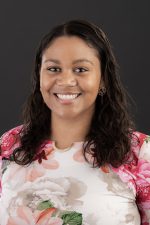
Lauren Barnes
Lauren Barnes joined the Center for Black Digital Research as a #DigBlk Scholar in 2021, and she is a 2020 Cooper DuBois Fellow. Lauren is a Bunton-Waller Fellow who is pursuing a Dual Title Ph.D. in English and African American and Diaspora Studies at Penn State University. Her research interests include African American literature, African Diasporic studies, Southern Hemispheric studies, and how language mediates identity in relation to issues of race, gender, and place. She also loves to travel and swim. Advice for C-D Fellows: I encourage you to consider the reasons you are interested in graduate study. Taking time to reflect on what brings you to the work you hope to pursue can be a helpful exercise in considering a graduate program. What are the questions that you hope to answer for yourself in personal growth and through your research as a scholar? Who has helped you through this process? Why was that so impactful? What are the ways in which you might envision yourself as part of a department’s culture? What role does mentorship play in the program you are considering? Contact:lnb5101@psu.edu

D’Angelo Bridges
D’Angelo Bridges is currently completing a dual-title Ph.D. in English and African American & Diaspora Studies at The Pennsylvania State University. He specializes in rhetoric-composition, African-American literature, and religion. His scholarship elucidates how African Americans use rhetorical strategies to survive the constant barrage of anti-black violence they encounter in their daily lives; specifically, I investigate the formation of African-American rhetorical identities through religious discourse and literary culture. His dissertation, “Written in Black: Rhetoric, Religion, and Visions of Collective Freedom,” traces the development of collective visions of freedom in the works of five African-American writers. These writers—James Baldwin, Gwendolyn Brooks, Charles Chesnutt, Zora Neale Hurston, and Haki Madhubuti—convey the multidimensional, deictic nature of Black freedom in the United States. Contact:dab496@psu.edu
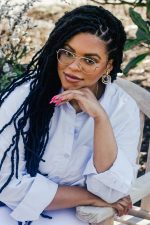
Kesla Elmore
Kesla Elmore is a dual-title PhD student in English and African American and Diaspora Studies. She is a Bunton-Waller Graduate Fellow, #DigBlk scholar in the Center for Black Digital Research working with the Black Women’s Organizing Archive’s paper locator project and a 2020 Cooper DuBois Mentoring program fellow. Elmore’s research interests include Black girlhood, 20th and 21st century African American literature, the great migration, media, digital humanities, and popular culture studies. Advice for C-D Fellows: Give yourself grace through this process. Through that grace, be as diligent and organized as possible. The more organized, the better you will be. Make a list of programs and faculty you’d like to work with, reach out to Grad students and even some faculty BEFORE you apply. It will save you so much time, money, and energy because this will lead you closer to the program that is right for you. Also, find a few people you really trust to review your materials with you. Have a professor or two, and maybe a couple friends/ colleagues you can work with on your application, but I would keep that circle small. Too many eyes on the same document(s) can lead to confusion for you, and it is harder to hear your gut and your voice as a writer and scholar over too much noise. Contact:kte5055@psu.edu
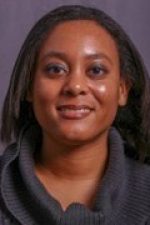
Sabrina Evans
My research focus is at the intersection of 19th century African American Literature, 19th century Black Print Culture, and Black Digital Humanities, with a particular concentration on Black women’s writing and organizing during the nineteenth and early twentieth-century. I co-organized the Cooper-Du Bois Mentoring Program in 2019 and 2020. From 2019-2020, I was Project Manager for Douglass Day 2020, an annual global crowd-sourcing event centering transcription, reading, and public engagement with Black Archives. Along with my project management duties, I am well-versed in Zooniverse as a platform for transcribing archival materials and helped to design the transcription program for Douglass Day 2020. As a Center for Black Digital Research Fellow, I served as Program Coordinator for the Cooper-Du Bois Mentoring Program and Project Coordinator for the Black Women’s Organizing Archive (BWOA). Advice for C-D Fellows: Don’t be afraid to ask any and all questions once you’re prepared to make a decision about graduate school. Ask to meet with both faculty and graduate students to ascertain if the school is a good fit for you. Advocate for the resources that you need: is there funding available for moving costs? Research the average living wage in the area and if the 2 offered stipend doesn’t meet your needs, this is the moment to negotiate. Ask about the teaching load as well as other opportunities for career development if you’re not interested in an academic job in the future (i.e. internships, research opportunities). Ask about summer funding. Think about what you need to be a healthy productive student and person and whether the school you’re interested in will provide the support and the community you need. Contact:sle33@psu.edu
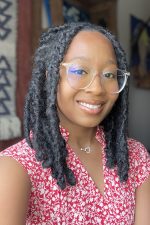
Courtney Murray
Courtney Murray is a Dual-Title PhD student in the Departments of English and African American Studies and a Scholar with the Center for Black Digital Research (CBDR) at The Pennsylvania State University. Her research focuses on 19th century African American Diasporic archives and literature and how those texts engage with Black feminisms, space/time, fugitivity, and liberation. At the CBDR, she further expands her research with Black Digital Humanities methods. In addition, she has served on the Colored Convention Project’s Douglass Day Zooniverse crowdsourcing development team, Douglass Day Communication and Outreach committee, and Digital Archives Committee. Advice for C-D Fellows: I have two big pieces of advice that I wish I knew when applying to graduate programs: 1) really, really research each and every program and 2) connect with graduate students in these programs. Although on the surface level these may not seem connected, they really are. If you remove name, status, and rank, ask yourself: what and who can help me succeed in this program? That can cover everything from financial resources, mentorship, local resources, etc. But, if you also contact as many of the graduate students that you can in your field, you will also get a chance to see if the program/department really supports their students the way that they claim either on their website and in other spaces. Contact:cxm2274@psu.edu
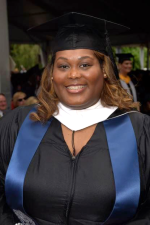
Morgan Robinson
Morgan Robinson is a Dual-Title PhD student in the History & African American Studies Departments at The Pennsylvania State University. She is currently a #DigBlack Scholar with the Center for Black Digital Research, a Bunton-Waller Fellow, and previously served as a 2021 Cooper-DuBois Mentoring Program Fellow. Her research interests focus on free Black people during the 19th century, particularly those belonging to the Black Bourgeoisie class. Morgan earned her BA in History from Spelman College and her MA in Global, International, & Comparative History from Georgetown University. Advice for C-D Fellows: ask for help from multiple people across disciplines. Having guidance from several directions opens you up to perspectives you may not otherwise consider, and it can help you present a stronger and more thoughtful application. Contact:mar6932@psu.edu
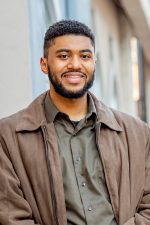
Justin Smith
Justin Smith is a dual degree PhD candidate in English and African American Studies and an inaugural Scholar with the Center for Black Digital Research at the Pennsylvania State University. His dissertation focuses on early 20th-century African American literature and how political identity and solidarity manifest themselves in literary texts (broadly conceived) with an emphasis on critical race theory as well as on liberation within the Black radical tradition. In addition, he has helped lead in digital crowdsourcing efforts to transcribe the written records of Black women as part of the annual Douglass Day transcribe-a-thon event in collaboration with various organizations and platforms including the Library of Congress and Zooniverse. His work has appeared or is forthcoming in The Black Scholar, Feminist Formations, The Modernist Review, The Space Between Journal, and Scribes. Advice for C-D Fellows: Almost everyone else whose applying is at the same stage of their educational journey that you are probably at too. You are just as qualified to attend grad school as anyone else. Don’t underestimate or undersell your knowledge and skills because you imagine that other applicants are somehow more qualified. Contact:jas1377@psu.edu
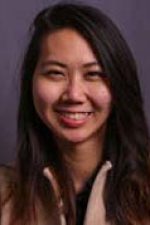
Eunice Toh
I am a third-year PhD candidate pursuing a dual title degree in English and African American and Diaspora Studies. My dissertation project, tentatively titled “Black Cosmo-cologies: Rebirth and Renaissance in the Long Nineteenth Century,” considers how a terrestrial-oriented directionality might offer us an epistemological framework for thinking about the cosmological dimensions of Black ecologies. By bringing together the fields of Black Ecologies and nineteenth-century American literature, I hope to demonstrate the intertwined relationship between cosmologies and humanist understandings of the material/metaphysical. Contact:eunice.toh@psu.edu
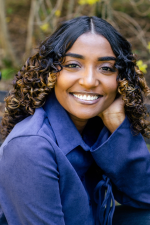
Carmin Wong
Carmin Wong is a poet, playwright, and scholar of Black literature and orature. She is pursuing a dual-title PhD in English Literature and African American and Diaspora Studies. After becoming a Cooper DuBois Mentoring Program Fellow and a Bunton-Waller Fellow, Carmin joined the Center for Black Digital Research as a #DigBlk scholar in 2022. She has earned a Bachelor of Arts in English, minoring in Playwriting, from Howard University, and a Master of Fine Arts in Poetry Writing from the University of New Orleans. Her writings and research center transnational Black identities with attention to oral and written literatures in the US and Caribbean. Contact:cwong@psu.edu
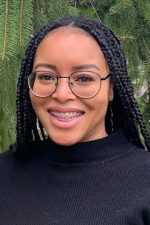
Takina Walker
Takina Walker a MA student in English and a #DigBlk scholar in the Center for Black Digital Research where she works with the Black Women’s Organizing Archive on locating the scattered archives of 19th century Black women writer/activists. She is a 2021 Cooper DuBois Mentoring program fellow and her research interests include African American literature, love, romance and the erotic. Contact:Takina.Walker@psu.edu

Norma Watson
She is pursuing a Ph.D. in Latin American history with a dual title in African American Studies. Her research centers anti-Blackness in education and how Blackness is labeled as a threat to nationalism, in Cuba and the US. She specifically wants to investigate the commonalities between 20th century 21st century grassroots self-help initiatives created by local community builders, Black mothers, and educators to combat anitBlackness in education systems. The overall goal of her long-term research is to identify the racism and antiBlackness rooted in political decisions that persist today while also examining the long-term resistance and sustainability developed across different generations and borders that demonstrate Black folks’ solidarity. With the use of Black Feminism, she will connect movements across the Black Diaspora and different generations, to uncover the theorist and revolutionaries that influenced Black coalitions, in the hopes of exposing more commonalities in their foundations. This research requires her to not only familiarize herself with Latin American history but also Black cultural, gender and racial theories. Her research will provide an alternative lens in understanding the Black experience in different spaces across Latin America and create a nuance understanding of Black “resistance” as just surviving in places where they are not intended to do so. Advice for C-D Fellows:Consider applying to both Masters and PhD programs, there are pros and cons to both and they each shape your learning journey in unique ways. Think of the type of experience you want to have in grad school, what kinds of academic relationships you want to form, and what type of learning environments you best thrive in. Use those thoughts and decisions to inform your application process. Contact:jnw99@psu.edu
Cooper-DuBois Planning Committee
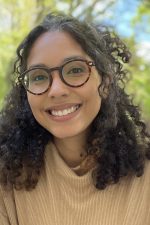
Wendyliz Martinez, Program Coordinator
Wendyliz Martinez is a PhD Candidate in African American Studies and English Dual Title Program at Penn State. Her research interests include representations of the Caribbean and Black Girlhood in literature, film, and social media. She has recently published a chapter titled, “Tik Tok For Us By Us: Black Girlhood, Joy, and Self-Care” in Tik Tok Cultures in the United States edited by Trevor Boffone. Martinez is a City College of New York and Mellon Mays Undergraduate Fellow.
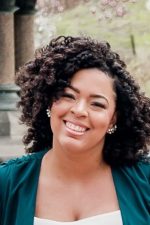
Yolanda Mackey, Program Coordinator
Yolanda Mackey is a PhD Student in the English and African American and Diaspora Studies Dual Title Program at Penn State University. She is a 2022 #DigBlk Scholar at the Center for Black Digital Research and currently serves as the program coordinator for the Black Women’s Organizing Archive (BWOA) and a project coordinator for the Cooper-DuBois Mentoring Program. Her research focuses on early twentieth-century African American literature and explores collective identity formation, and the impact social movements have on that effort.
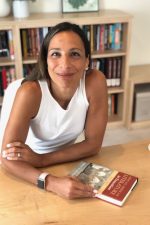
Shirley Moody-Turner, Founding Director
Shirley Moody-Turner is an associate professor of English and African American Studies and founding co-director, with Gabrielle Foreman, of the Center for Black Digital Research, #DigBlk. Her work focuses on the racial and gender politics of literary production and recovery at the turn into the twentieth century. She is interested in creating collaborative spaces to support digital scholarship and recovery work and in working across institutions and engaging various publics to do so. Through a Center for Humanities and Information grant, she worked with the Moorland-Spingarn Research Center at Howard University to digitize the Anna Julia Cooper papers and was a co-organizer, with project director Jim Casey, of Douglass Day 2020, which transcribed papers from the Anna Julia Cooper collection as a way to honor and celebrate Black women’s contributions to movements for social justice. She has published numerous works in these areas, including Black Folklore and the Politics of Racial Representation, the co-edited volume, Contemporary African American Literature: The Living Canon, and African American Literature in Transition 1900-1910 (Cambridge University Press). Most recently, she edited the Portable Anna Julia Cooper (Penguin-Random House 2022) bringing together writings across the long career of this visionary Black feminist, and is currently at work on an interpretive biography of Anna Julia Cooper for Yale University Press’s Black Lives series. She co-directs the Cooper-Du Bois Mentoring Program and is a co-PI on the College of Liberal Arts’ Just Transformations Mellon Grant.